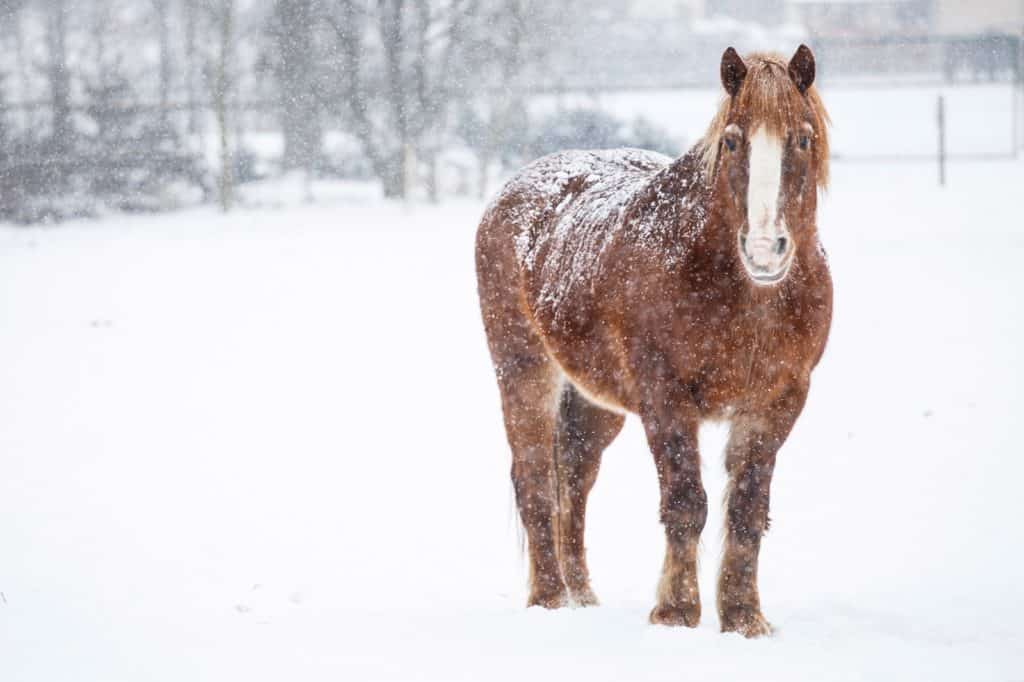
Readers Share Cold-Weather Horse Care Survival Tips
Extreme winter weather conditions can make horse care and barn chores challenging. Stay warm with these tips.
Proper feeding practices for foals, adult horses, and older horses

Extreme winter weather conditions can make horse care and barn chores challenging. Stay warm with these tips.

Ponies that didn’t receive extra hay adapted to the available food supply, but blood parameters suggested health problems could develop when the available fodder is insufficient.

Older horses tended to have higher insulin secretory responses to glucose compared to adult horses, researchers found.

Listen to audio features on equine learning, behavior, dentistry, metabolic syndrome, parasites, and more.

I used a senior equine feed to help my hard keeper gain weight. Now, should I switch him to a low-NSC product?

Find out why a horse might gain weight when switched to a feed marketed as “low-starch.”

Larger paddocks led to fewer social interactions–both positive and negative–among horses, researchers found.

Articles on laminitis, colic, hoof abscesses, licking and chewing, and wound care are among the most-read in 2017.

Find reports and forms on horse identification, scratches, supplements, harmonious housing, senior horses, and more.

Selenium is an important part of the equine diet, but is only required in small amounts and has a narrow safety margin.

Not everyone sees snow fly during the winter months, but horses still have seasonal needs that must be met.

Find out why a horse might prefer electrolyte water over plain water and if that’s a cause for concern.

Take a look at how immunosenescence and its effects impact the way owners and veterinarians care for senior horses.

Lean horses actually spent more time than obese ones eating, but both groups consume roughly the same amount of hay.

Ensure you’re providing your senior horse with the support he needs to stay healthy all winter long.

Study results suggest caretakers spend nearly $435 more annually managing obese equids compared to their nonobese ones.
Stay on top of the most recent Horse Health news with
"*" indicates required fields